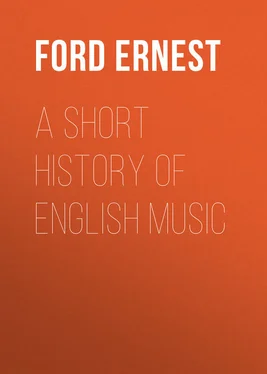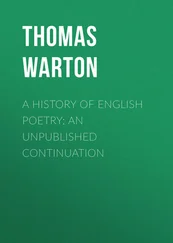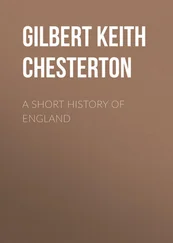Ernest Ford - A Short History of English Music
Здесь есть возможность читать онлайн «Ernest Ford - A Short History of English Music» — ознакомительный отрывок электронной книги совершенно бесплатно, а после прочтения отрывка купить полную версию. В некоторых случаях можно слушать аудио, скачать через торрент в формате fb2 и присутствует краткое содержание. Жанр: music_dancing, foreign_antique, foreign_prose, на английском языке. Описание произведения, (предисловие) а так же отзывы посетителей доступны на портале библиотеки ЛибКат.
- Название:A Short History of English Music
- Автор:
- Жанр:
- Год:неизвестен
- ISBN:нет данных
- Рейтинг книги:3 / 5. Голосов: 1
-
Избранное:Добавить в избранное
- Отзывы:
-
Ваша оценка:
- 60
- 1
- 2
- 3
- 4
- 5
A Short History of English Music: краткое содержание, описание и аннотация
Предлагаем к чтению аннотацию, описание, краткое содержание или предисловие (зависит от того, что написал сам автор книги «A Short History of English Music»). Если вы не нашли необходимую информацию о книге — напишите в комментариях, мы постараемся отыскать её.
A Short History of English Music — читать онлайн ознакомительный отрывок
Ниже представлен текст книги, разбитый по страницам. Система сохранения места последней прочитанной страницы, позволяет с удобством читать онлайн бесплатно книгу «A Short History of English Music», без необходимости каждый раз заново искать на чём Вы остановились. Поставьте закладку, и сможете в любой момент перейти на страницу, на которой закончили чтение.
Интервал:
Закладка:
The "catch" was a melody started by one singer and followed by another at an interval of one or more bars, singing identical notes, who would be succeeded by yet another in a similar manner. It depended upon the dexterity with which the performers would catch up their notes at the right moment as to whether harmony or chaos resulted.
It was a popular form of amusement, but we are hardly surprised when Malvolio appears on the scene and addresses the singers thus: —
"My masters, are you mad? or what are you? Have you no wit, manners, nor honesty, but to gabble like tinkers at this time of night? Do you make an ale-house of my lady's house, that ye squeak out your cozier's catches without any mitigation or remorse of voice? Is there no respect of place, persons, nor time in you?"
To all of which Sir Toby, treating it as an aspersion on his skill in music, replies, "We did keep time, sir, in our catches."
The madrigal was an altogether more serious form of art, and, except for the words, might be identified with the best specimens of ecclesiastical music. It was polyphonic in treatment, and generally grave in character. Indeed, to judge by some of the most celebrated examples, it seems almost savouring of jest to describe it as secular.
Of English composers, perhaps those who most excelled in this class of composition were Byrd, Dowland, and Orlando Gibbons. The most splendid example being that entitled, "The Silver Swan," by the last-named.
The glee, although less serious in character, as its name implies, was a truly artistic type of concerted music, and there are numerous specimens of early date of great beauty and contrapuntal skill, but they are characterised by comparative simplicity.
The transition from one to the other would seem natural, seeing the extreme elaboration that rendered the madrigal difficult of interpretation to any but highly-skilled singers.
The beautiful "Since First I Saw your Face," by Thomas Ford, can hardly be described by either title, for while it is removed in tone from the glee it lacks the atmosphere of the schools that the madrigal suggests. The glee, as it is popularly known to-day, is of a later date, and came to perfection about the middle of the eighteenth century.
It is a remarkable fact that perhaps the most beautiful and certainly one of the most skilfully written specimens of mediæval music, is also one of the most ancient. The date of it must be purely conjectural, although the scholar may to some extent be guided by the words as to the actual century of its origin.
The opening words, "Sumer is icumen in," are probably familiar to most readers, since they are ever in evidence when the question of old English music is under consideration. Indeed, it would take many volumes to record what has been written about this extraordinary composition.
From whatever point of view it is judged it commands admiration and wonder.
It demonstrates that in the art of music England was then not only abreast of foreign nations, but probably in advance of them.
It shows that polyphonic writing must have reached to a high point of development even so far back as the thirteenth century, and there is every reason to believe, even long before then.
It seems to me to be only a very obvious deduction. Just as there must have been many great poets before Homer, so this work must be the fortunate survivor of a long-lost school that, unhappily for us, had no enduring medium for transmission of its genius to later ages.
It exhibits, apart from the skill that characterised ancient ecclesiastical music, from which it indubitably sprang, a rare genius in interpreting the spirit and feeling of the words. In this respect it may be said to have anticipated centuries to come. With every appreciation, sincere and even reverend, of the ancient music of the Church, it must be acknowledged that in spirit it was rigid, severe and formal. In other words, it appealed to the religious and intellectual sense rather than that of beauty. "Sumer is icumen in," on the contrary, seems to be the work of one who is able to leap over the centuries and speak in the tones of ages unborn, to be, in fact, a forerunner, a teacher of the ages then in the womb of Time.
It has, in perfection, three great qualities of the highest art – perfect skill in execution, commanding appeal to the purest emotions, and the power to leave the mind in a state of ecstatic rest or emotional contentment that makes one oblivious of the world while listening or watching. It was the outcome of an age of great religious enthusiasm. The monks had great dreams, and with them came the energy that inspired their brains to the utmost fulfilment.
The dream that led to the Crusades is the one that has most appealed to the imagination of the world; but it was only one of many.
"Sumer is icumen in" was written in a form that seems to have especially appealed to those early composers, for the canon 13 13 A canon is a form of composition in which a melody is started by one voice and followed by another, one or more bars later (or even less) in strict imitation of it.
was a constant medium of musical expression in mediæval times.
That the reader may the more readily understand, I quote here a specimen that is at once beautiful and familiar to all, and is known as the "Morning Hymn." Its simplicity will make it intelligible to the least technically instructed of musical readers: —
It will be observed that the last four notes in the treble clef indicate the repetition of the melody, which can continue indefinitely as here represented.
When we come to the consideration of instrumental music of olden times, we have little to guide us in the formation of any dear conception of its value or importance.
It is evident, however, that up to the time of Purcell or that immediately preceding it, the state of development was altogether inferior to that of vocal music.
For many centuries, except as regards its use in the Church, it occupied the humble position of handmaiden to the sister art of dancing.
Such of it as still exists is, practically, all written in dance measure. The dances were, it is true, in varied forms and rhythms. Some were stately and even serious in character, and offered the composer an opportunity to display his skill in a more thankful task than in furnishing accompaniments to the lighter and more frivolous ones.
Beautiful specimens of these are found in the compositions of William Byrd, John Ball, Orlando Gibbons, and others of the same period; they were mostly written for the virginals.
To those living in this age of stupendous achievement in the art, the comparative simplicity and ineffectiveness of instrumentation may well seem strange, seeing to what a point of splendour vocal music had attained.
The explanation is, I think, to be found in the defective nature of the instrument on which the composer had to rely to provide the sounds that his consciousness urged him to produce.
The violin had yet to be brought to perfection through the genius of a Stradivarius, and time was needed to show its full capacities in the hands of a Paganini.
The wind instruments, too, of the modern orchestra are of incomparable possibilities to those in use in the sixteenth century.
However, with the improvement and perfecting in their manufacture came a decided step towards a higher and independent form of art, and that this advance was not slowly taken advantage of is shown in the most extraordinary way in the works of Purcell.
Again, the very imperfect forms of musical notation must have always proved a stumbling-block to those early musicians. Even to-day, with its advanced methods, the act of putting on paper a modern orchestral composition is a work of enormous labour. The reader will understand this, when I say that music which takes but merely a few minutes in performance may easily take the composer as many hours to translate on to the pages of his score.
Читать дальшеИнтервал:
Закладка:
Похожие книги на «A Short History of English Music»
Представляем Вашему вниманию похожие книги на «A Short History of English Music» списком для выбора. Мы отобрали схожую по названию и смыслу литературу в надежде предоставить читателям больше вариантов отыскать новые, интересные, ещё непрочитанные произведения.
Обсуждение, отзывы о книге «A Short History of English Music» и просто собственные мнения читателей. Оставьте ваши комментарии, напишите, что Вы думаете о произведении, его смысле или главных героях. Укажите что конкретно понравилось, а что нет, и почему Вы так считаете.












